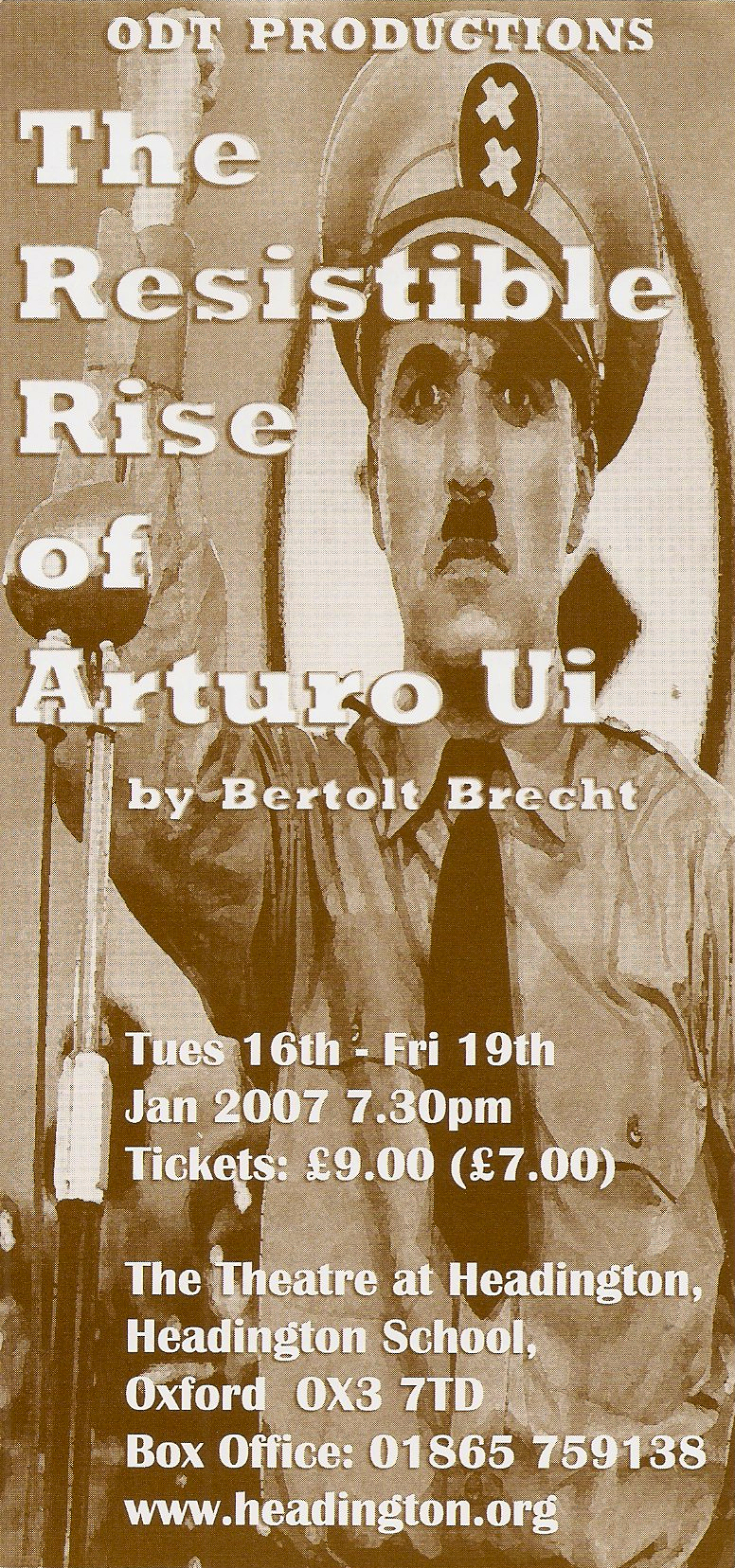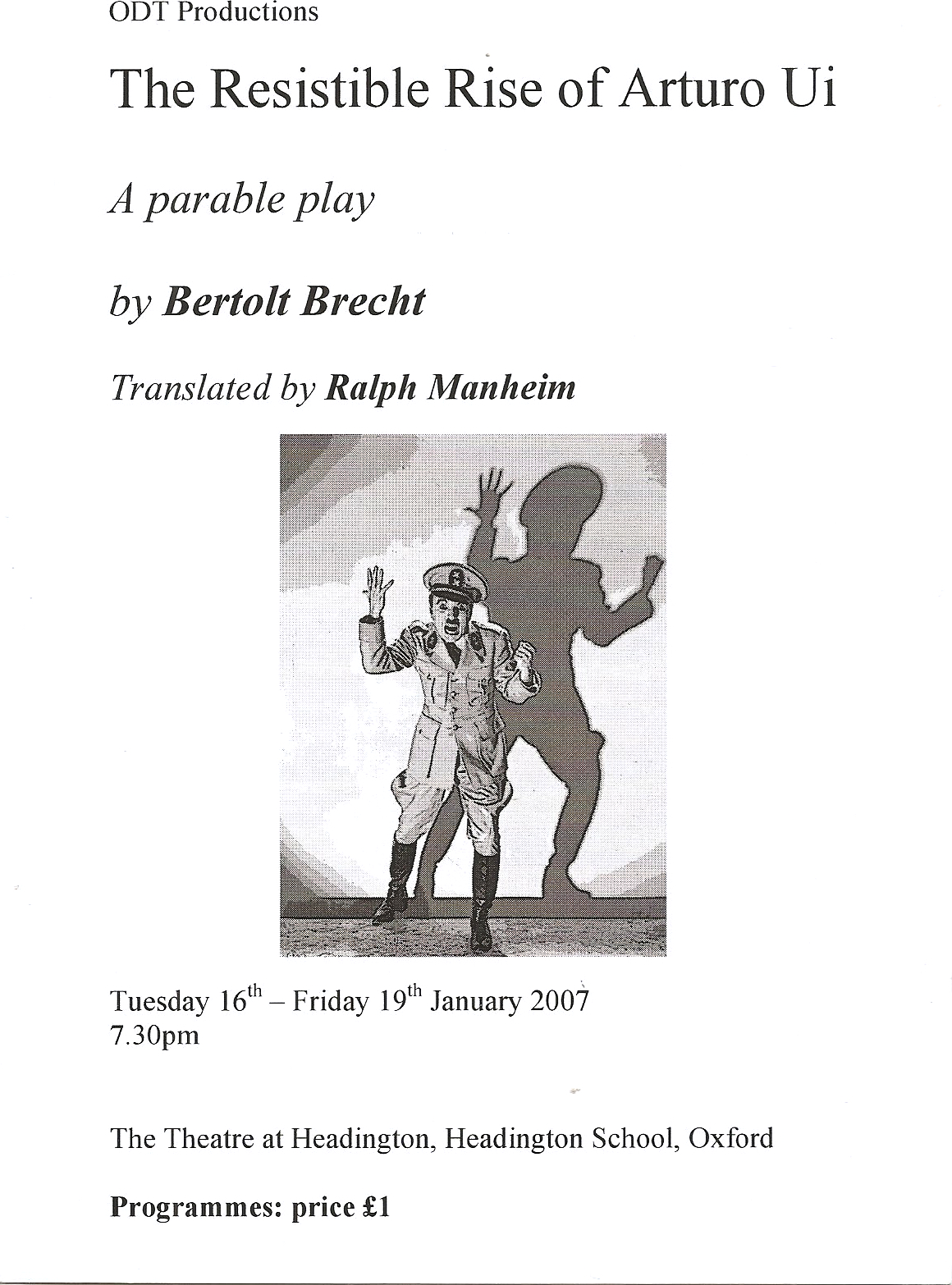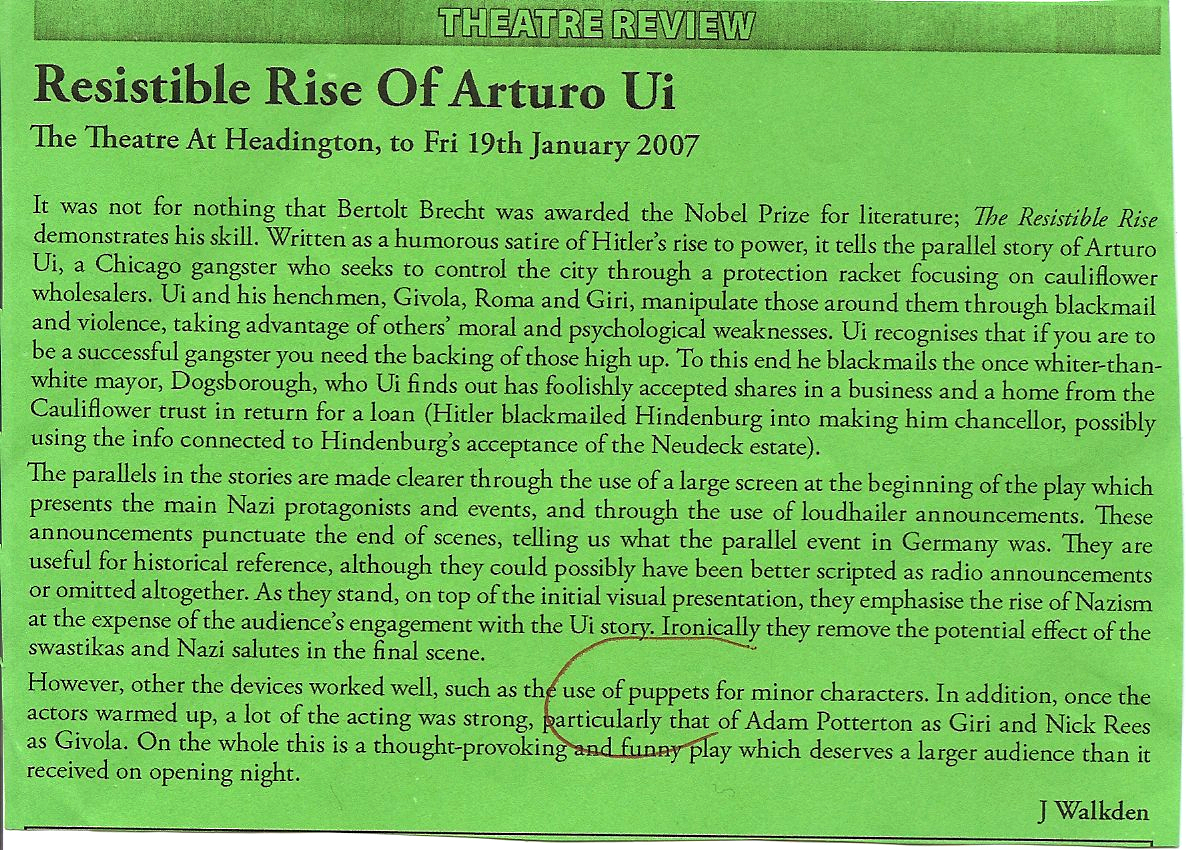
Having directed six shows in the Old Fire Station, by 2006 I was on the lookout for other possible venues. I had used the Old Fire Station in as many ways as possible, but it was now available only with a small/medium sized end-on stage, so other more innovative ways of staging were out of the question.
I wanted to continue with plays that were on the schools’ Theatre Studies A Level syllabus, not only because this was a way of getting ‘bums on seats’, but also because it enabled me to continue my own theatrical learning experience. Plays studied were interesting, being of different periods and styles, ranging from Sheridan’s The Rivals to The Glass Menagerie by Tennessee Williams, all making a variety of demands on actors and directors. Each required much research on my part, which I found fascinating. I directed The Rivals and The Glass Menagerie at the Old Fire Station, when finally the only option was to use the theatre with an end-on stage. This suited both plays perfectly, since confinement and simplicity of space is essential to the drama, both comic and tragic.
I had seen Arturo Ui, described in the programme as a parody of the rise of Hitler, performed at the Playhouse many years earlier. I found it a great satire, very funny indeed, with a marvellous comic actor, probably Warren Mitchell(?), playing Arturo. It was a disappointment when I found the actual text comparatively difficult to work on, with some political speeches at the beginning definitely too long and wordy. These I should have cut, but this becomes problematic when amateur actors have gone to the trouble of learning their words and object to any loss of their hard won lines! As Adam Potterton, one of the gangsters, said, ‘Arturo Ui was probably the most unusual production I have been in, given its very long running time and the fact that the actors were on stage for the duration of the play, even when not performing.’ It was only afterwards, when I discovered that the version I had seen at the Playhouse had the advantage of a specially adapted script, that I knew why I had found it so funny. (Working with an adapted script, the Brecht Estate, being as strict as the Beckett Estate, would not have permitted us to do.) Anyway, that’s a criticism of myself, certainly not of the actors.

I had been to the Theatre at Headington Girls’ school, and thought it would be a formidable space for a play of some size, like Brecht’s Arturo Ui. Here his cartoon ‘Hitler’ gives ranting speeches to the masses, which would be all the more impressive when delivered from a podium to a large, dispersed audience. The performance area was certainly spacious, and there was room for a large raised audience, seated ‘in the three quarters’, which was just right for the play.
As I say in my programme notes, we made appropriate use of ‘beautifully crafted puppets’ for the minor characters, whose roles seem barely to exist. My use of these puppets was instinctive, but also made necessary because not enough actors had come to audition for all the roles(!). Happily, however, it felt very Brechtian and in keeping with the tenor of the play. As Robert Bristow, who played Ui, remembers, ‘One aspect of the production that I particularly liked and thought worked very well was the use of ventriloquist dummy type puppets for two or three of the roles … this device worked splendidly on an artistic level, adding another dimension to the drama, creating a metaphor for the different levels of manipulation in the story, and the idea of key figures having words put in their mouths by other characters.’

Robert himself relished the ‘fantastic and hugely challenging role’ of Ui and was outstanding in the part. He comments that, having finally coped with the vast quantity of lines required by the role, ‘the experience of being inside the skin of the dark, sinister dictator was very powerful. He enjoyed the ‘structure of the production and felt supported by the able supporting cast.’ In fact all players were strong and vibrant, totally convincing in their roles. For example, Adam Potterton and Nick Rees as Giri and Givola (two of Ui’s gang) were praised by the Daily Information reviewer, Ruth Landreth, who wrote, ‘They were confident, likeable and I found myself laughing with them – collaborating with them?’ I think Brecht would have been pleased. As Robert also commented, ‘the stylised movement and other elements of direction fitted well with the “alienation effect” so salient to Brecht’s work, and led to a dynamic and thought-provoking production of this striking piece of theatre.’
However, Gerard Gould finishes his review with a general comment on Brecht: he will survive ‘as a theorist, but not as a practitioner. Didacticism and theatre do not mix. Theatre is magic. We all need magic in our lives.’
Is he right, do you think?